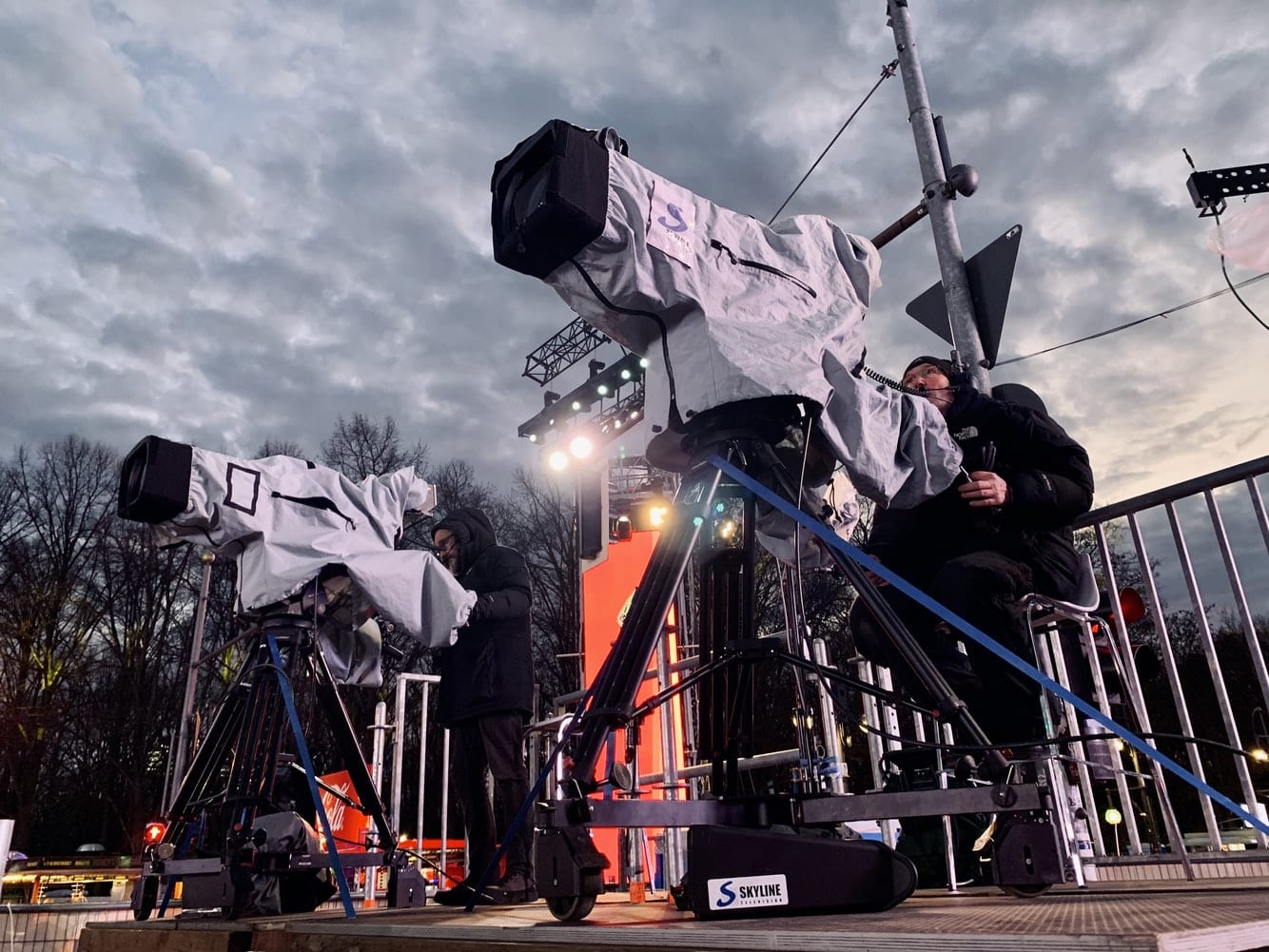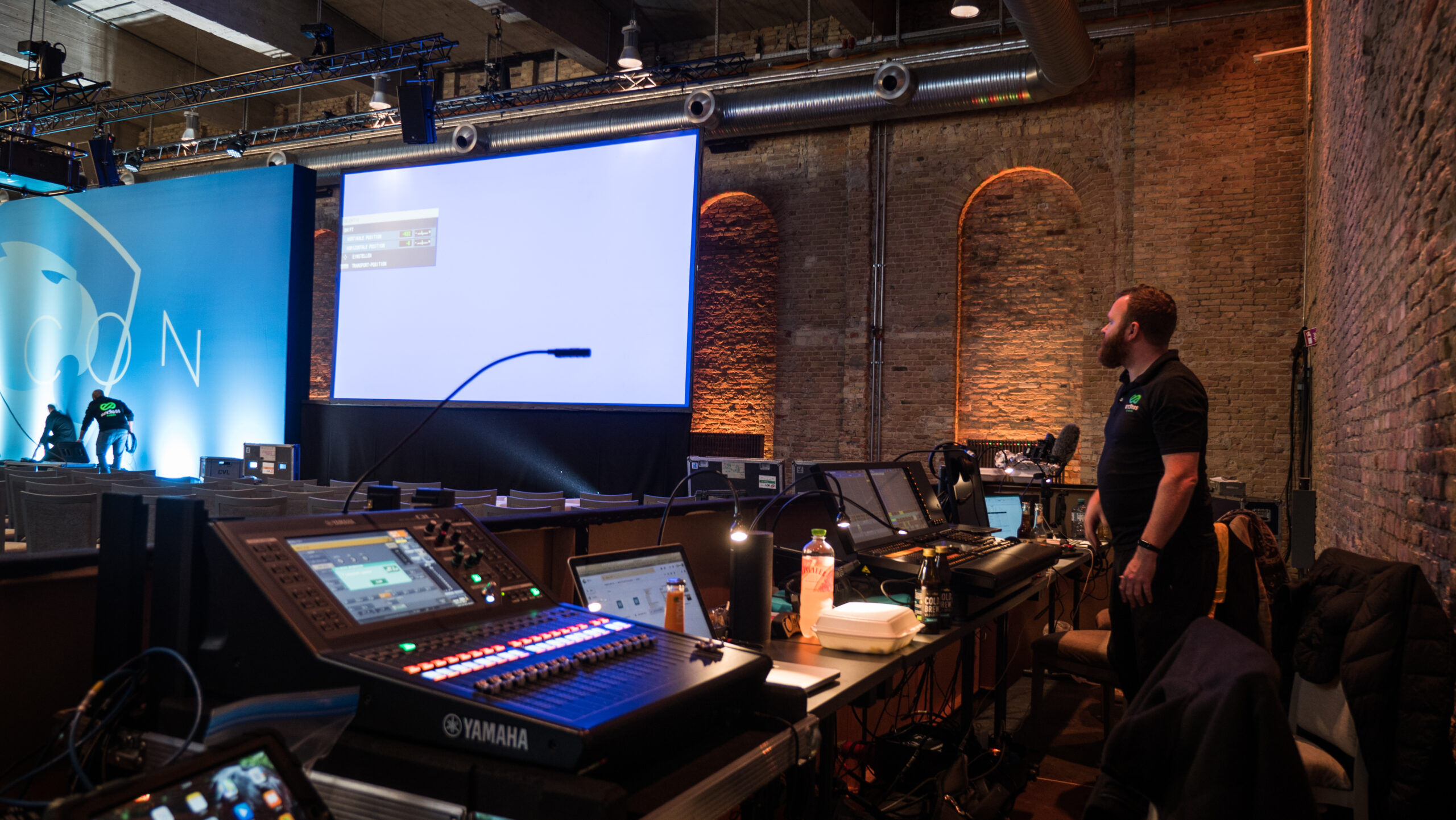How Event Production Functions: A Comprehensive Consider the Refine
Event production is a complicated and structured procedure that calls for cautious planning and implementation. It starts with establishing clear objectives and understanding the target market. Each action, from budgeting to venue selection, plays a crucial role in ensuring success. As the procedure unravels, different elements have to straighten effortlessly. The nuances of this detailed procedure typically go unnoticed. What are the key stages that add to an unforgettable event?

The First Planning Stage
When starting on event production, mindful preparation is important to assure an effective result. The preliminary preparation phase works as the structure for all subsequent efforts. During this stage, event manufacturers must define the event's function and goals clearly. Identifying the target audience assists customize the experience and messaging, assuring significance and engagement.Producers should also take into consideration the event style, whether it be in-person, online, or crossbreed, as this will certainly influence numerous logistical aspects. Selecting an ideal date and place is essential, as it affects ease of access and availability.Furthermore, assembling a reliable group is fundamental for separating obligations and streamlining interaction. Establishing a timeline with landmarks assurances all jobs are completed on timetable. This stage includes complete research, including recognizing prospective obstacles and developing approaches to mitigate dangers. Eventually, a well-structured first preparation phase sets the tone for an effective event production journey.

Budgeting and Resource Allocation
In event production, efficient budgeting and source allocation are vital for success - event production charlotte. Developing economic parameters sets the foundation for all subsequent choices, while source circulation strategies guarantee that every element of the event is appropriately supported. Together, these aspects help maintain control over expenditures and enhance using available sources
Developing Financial Parameters
Developing economic parameters is important to the success of any type of event production, as it sets the foundation for reliable budgeting and resource allowance. This procedure begins with defining the general spending plan, which includes all facets of the event, consisting of venue expenses, catering, and advertising. By determining readily available funds, event coordinators can focus on expenses and allot resources accordingly. In addition, it is important to carry out thorough marketing research to prepare for possible prices and recognize financing sources, such as sponsorships or ticket sales. Establishing clear financial criteria additionally help in danger management, allowing planners to reserve contingency funds for unanticipated expenditures. Inevitably, a distinct budget plan works as a roadmap, directing the event production team towards attaining their objectives while keeping economic control.
Source Distribution Approaches
Efficient resource distribution methods are crucial for taking full advantage of the impact of an occasion while sticking to spending plan restrictions. Effective event production requires a meticulous technique to budgeting and resource allotment. Planners must focus on essential aspects such as place, wedding catering, and innovation, making sure that funds are designated to areas that boost attendee experience. A thorough budget plan should describe anticipated expenditures and identify locations for possible expense financial savings, such as negotiating with vendors or checking out sponsorship possibilities. In addition, tracking expenses throughout the planning process helps avoid overspending. By utilizing strategic resource distribution, event producers can provide an unforgettable experience while preserving monetary duty, inevitably adding to the total success of the event.
Venue Selection and Logistics
Choosing the right venue is important to the success of any type of event, as it sets the stage for the general experience. Venue selection involves assessing numerous variables, consisting of capacity, ease of access, and location. Planners must consider the target audience and the nature of the event, ensuring the venue straightens with the event's goals.Logistics play a substantial duty in this procedure, including plans for seating, audiovisual equipment, and catering solutions. An appropriate place should help with smooth flow for attendees and staff, enhancing engagement.Additionally, evaluating potential places for features like parking, washrooms, and emergency exits is very important for safety and convenience. The timeline for safeguarding the place is also critical, as preferred places may book quickly - event production charlotte. Subsequently, detailed planning and prompt implementation can inevitably add to a smooth event experience, making location selection and logistics basic elements of effective event production
Creative Concept Advancement
While the venue establishes the physical stage, innovative principle development shapes the event's identification and narrative. This procedure starts with identifying the event's function and target market, allowing event producers to develop an engaging theme that resonates with guests. Conceptualizing sessions typically consist of varied perspectives, promoting ingenious concepts that straighten with the event's goals.Once a theme is established, visual aspects such as color combinations, signage, and decoration are made to boost the total atmosphere. Storytelling techniques may also be integrated to create an engaging journey for participants, guaranteeing a memorable experience. Additionally, considerations concerning enjoyment, tasks, and interactive elements are lined up with the selected concept, reinforcing the theme throughout the event.Ultimately, effective creative concept development guarantees that every aspect of the event works cohesively, leaving a lasting impact on participants and meeting the event's purposes. This fundamental job lays the foundation for succeeding planning and execution stages.
Collaborating With Suppliers and Distributors
Effective event production rests on effective collaboration with suppliers and distributors. Picking reliable partners, negotiating contracts successfully, and making sure timely deliveries are critical action in this process. Each of these elements contributes significantly to the overall success and smooth implementation of an event.
Selecting Reliable Allies
How can event organizers ensure a seamless production experience? Selecting trustworthy partners is essential in attaining this goal. Event organizers have to conduct detailed research study to determine suppliers and vendors with a proven track document of excellence. This consists of checking recommendations, reviewing portfolios, and reviewing client responses. Planners must prioritize partners that demonstrate professionalism, timely interaction, and a willingness to team up. Building strong partnerships fosters depend on and enables quick analytical throughout the event. In addition, it is advantageous to select neighborhood vendors that recognize the venue and local logistics. Inevitably, a successful event rests on the harmony in between planners and their partners, making certain that every element of production runs efficiently and efficiently.
Negotiating Agreements Successfully
Effective settlement of contracts is an important action in the partnership in between event coordinators and their vendors and providers. This process involves clear communication of assumptions, deliverables, and timelines. Organizers need to perform detailed study on market prices and market requirements to establish a baseline for arrangements. It is very important to develop a collective atmosphere, encouraging open discussion regarding terms, prices, and potential backups. Coordinators ought to also focus on comprehending the vendor's capacities and restrictions to align their demands successfully. Versatility can lead to equally useful agreements, cultivating long-lasting relationships. Crafting distinct contracts that consist of particular efficiency metrics can assist guarantee liability, eventually leading to effective event execution and contentment for all celebrations involved.
Making Sure Timely Distributions
Timely distributions are important for the smooth implementation of any type of event, calling for persistent collaboration between planners and their suppliers and suppliers. Efficient interaction is vital, as it assists develop clear assumptions concerning distribution schedules, quantities, and specific needs. Coordinators usually produce thorough timelines to outline important milestones, making sure all parties stay lined up throughout the procedure. Regular check-ins with suppliers can assist identify prospective hold-ups early, permitting positive options. Additionally, developing strong connections with reliable providers promotes trust fund and accountability, which can result in much better solution and prioritization. By focusing on these collaborative efforts, coordinators can lessen disturbances, therefore boosting the overall efficiency of event production and guaranteeing that all needed materials and solutions show up as prepared.
Marketing and Promotion Strategies
While arranging an occasion, the success of advertising and promotion strategies can greatly affect attendance and interaction. Effective approaches usually include a mix of Recommended Site digital marketing, standard advertising, and grassroots outreach. Making use of social networks systems permits real-time communication and targeted marketing, getting to particular demographics effectively. Email advertising projects can even more involve potential guests with personalized material and reminders.Collaborations with influencers or industry leaders can likewise enhance credibility and expand reach. Creating appealing content, such as videos or blog sites, helps to produce buzz and sustain passion leading up visit the site to the event. Furthermore, leveraging early-bird discounts and exclusive rewards can incentivize ticket purchases.Promoting with traditional networks, such as posters or local media, continues to be relevant, particularly in community-focused events. A thorough approach that incorporates several approaches warranties maximum visibility and interaction, inevitably contributing to the event's success and the development of a remarkable experience for guests.
On-Site Implementation and Monitoring
On-site implementation and management are necessary parts that identify the total success of an event. Effective sychronisation throughout the event assures that all components straighten with the planned schedule. Event supervisors supervise logistics, including vendor sychronisation, tools setup, and visitor solutions. Keeping an eye on timelines and resolving any kind of unexpected issues are essential for preserving a smooth experience.The personnel plays a considerable role, as trained personnel are accountable for numerous jobs such as registration, details dissemination, and technological assistance. Interaction among staff member is important; it promotes a collaborative environment and makes it possible for quick resolution of challenges.Additionally, safety methods must be complied with, safeguarding the well-being of all participants. Post-event analyses are additionally component of on-site administration, offering insights for future renovations. By concentrating on these elements, event producers can create memorable experiences that fulfill or surpass guest expectations while attaining the event's goals.
Often Asked Inquiries
Exactly how Do I Choose the Right Event Motif?
Selecting the right event motif includes thinking about the target audience, event purpose, and location. Researching present fads and gathering input from stakeholders can also inspire imaginative ideas that resonate and develop a memorable experience.

What Prevail Mistakes in Event Production?
Usual mistakes in event production often consist of inadequate preparation, poor interaction among employee, spending plan mismanagement, Homepage overlooking to take right into account the audience's demands, and stopping working to perform a detailed post-event examination for future improvements.
Exactly How Can I Measure Event Success?
To determine event success, one can analyze guest complete satisfaction, involvement degrees, budget plan adherence, and post-event responses. Key efficiency indicators, such as ticket sales and social media sites interactions, additionally provide useful understandings into general performance.
What Should I Do if It Moistens the Event Day?
In case of moisten the day, the coordinator ought to apply contingency plans, such as safeguarding tents or moving tasks indoors. Interaction with participants about modifications is necessary to assure a smooth experience in spite of weather condition obstacles.
How Can I Make Certain Attendee Involvement During the Event?

Comments on “Put your message in motion with event production charlotte branding tactics”